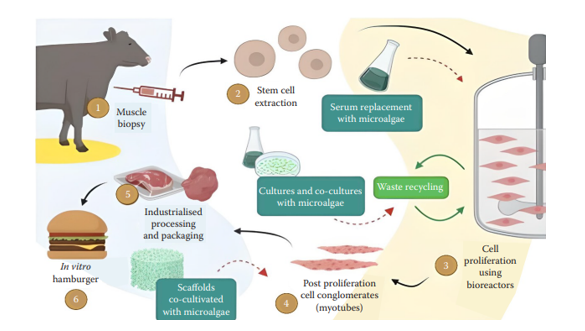

Los invitamos a leer el último artículo publicado en la revista Czech Journal of Food Science, por el egresado de Bioingeniería, Arturo Rojas Tavara y el profesor del Departamento de Bioingeniería e Ingenieria Química, Alberto Donayre, titulado ««Microalgae in lab-grown meat production»
Abstract:
Reports have shown that meat production operations today contribute to the climate crisis, facilitating the occurrence of infectious diseases, and contributing to environmental pollution. Consequently, the public demands alternatives to traditional meat, such as in vitro manufactured meat. Several authors have suggested that improvements should be made in the manufacturing of cell-cultured meat to make a more sustainable and scalable process. They recently proposed using microalgae as a sustainable system to produce important nutrients such as oxygen from cellular waste molecules of animal cultures such as ammonia and carbon dioxide. In this review, we discuss recent advances of different microalgae applications in the production of lab-grown meat, with special emphasis on their use as a replacement for fetal bovine serum (FBS) or culture media, as well as its applicability as a source of cell oxygenation and waste upcycling to extend the life of animal cell cultures. Also, we discuss the implementation and limitations of these algae systems in large-scale in vitro meat manufacturing.